QuestionI adopted my 3 year old cat from a shelter almost one year ago. After having her for a few months she began overgrooming the back of her hind legs. There is almost no fur left on the upper part of them now. This is the only spot that she overgrooms and there hasn't been any changes in my house since I got her. She never seems the least bit stressed and I do have a playing and feeding routine. Any suggestions of how I could get her to stop overgrooming that one spot?
AnswerShelly,
A medical issue causing her behavior should be ruled out before treating it as a behavioral or emotional problem. Some possible medical conditions are cystitis, inflammation of anal sacs, hyperthyroidism, allergies or hypersensitivity to parasites, food, dust, pollen, or mold.
You didn't mention if you have treated her for fleas. She may have Flea Dermatitis. That is an allergy to flea saliva. Even ONE flea or flea bite can cause a reaction such as your cat is having.
If a trial dose of steroids controls excess grooming, the condition is probably medical and not psychogenic in origin.
Compulsive 0ver-grooming behavior is called Psychogenic Alopecia. Hair loss is generally on areas only accessible to the cat such as the abdomen, flank, back, chest, and legs. It is a way to reduce emotional tension due to psychological reasons such as stress, nervousness, fear or anxiety. It is more common in purebred cats of Oriental breeds.
Since the cat came from a shelter, do you don't know the experiences that the cat went through before you got her that may be causing emotional issues. You can try and determine the cause of the cat's anxiety and/or stress and if possible eliminate it. Often though you may not be able to figure out the exact cause because if she is the nervous type, she will react the same way to ANY cause of stress to her....even you arguing with someone may stress her. If that is the case anti-depressant or anti-anxiety medication (like kitty Prozac) is prescribed to keep the psychogenic behavior in check. Sometimes, as with people, it can take a few weeks to begin to work on the cat.
Clomipramine has been effective in controlling the signs of anxiety-related, and obsessive-compulsive, disorders in cats and is well tolerated. The average maintenance dosage is 0.3 mg/kg once daily. You may wish to ask your vet about it.
You can try channeling her attention away from herself by keeping her mentally occupied. There are cat videos on VHS/DVD that you can play for her. I have some and my cat LOVE THEM! Here is the link where you can get them: http://petsittervideos.com/index.html
Or get an aquarium or gerbil/mice in cages for her to watch and try to 'catch'. A pet laser light (from Petco, PetSmart, etc.) is also a great interactive toy that cats love. They can chase the little red 'bug' on the floors, walls, and ceilings.

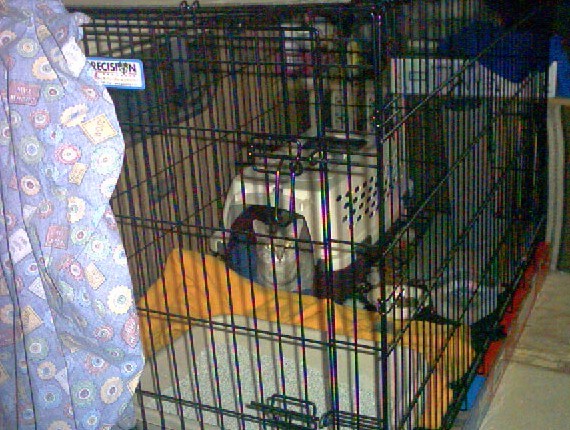 Older Kitten Attacking Younger Kitten
QuestionI just brought home a kitten that is 7 weeks ol
Older Kitten Attacking Younger Kitten
QuestionI just brought home a kitten that is 7 weeks ol
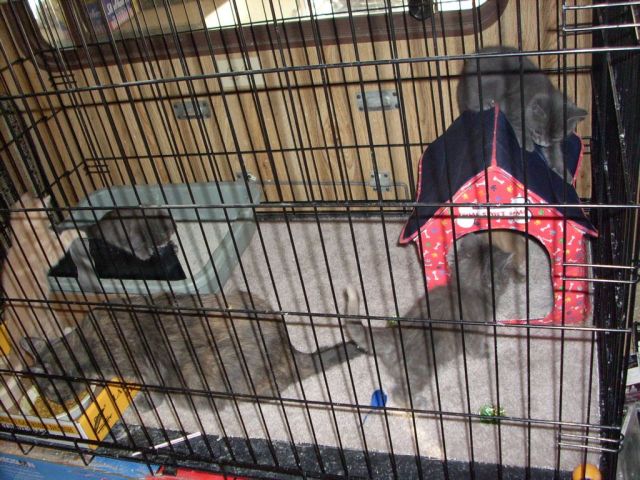 Angry cat wants to go outside
QuestionHello, I adopted a cat from the humane society
Angry cat wants to go outside
QuestionHello, I adopted a cat from the humane society
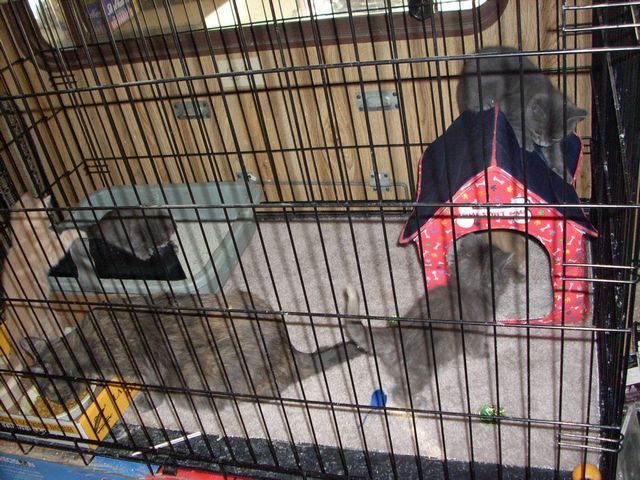 Blending adult kitties
QuestionWe had 5 cats. 2 females, and 2 long haired mal
Blending adult kitties
QuestionWe had 5 cats. 2 females, and 2 long haired mal
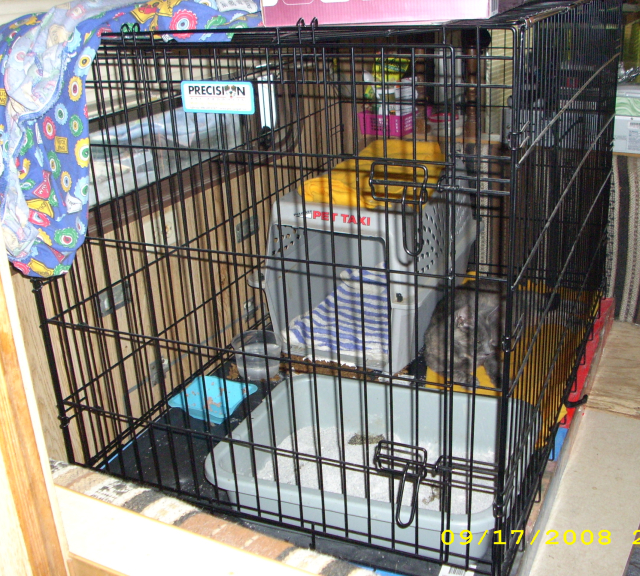 Wonderful, Frustating Cat
QuestionI have a cat that adopted me, my dogs and my ot
Wonderful, Frustating Cat
QuestionI have a cat that adopted me, my dogs and my ot
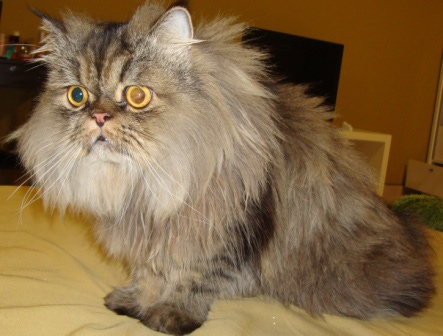 cat scared of everything
Question
Hugo Hugo
Hi,
I have a 2.5 years
cat scared of everything
Question
Hugo Hugo
Hi,
I have a 2.5 years